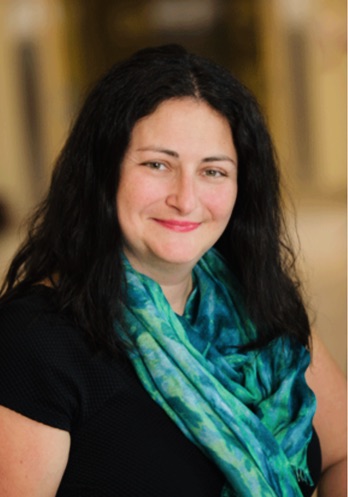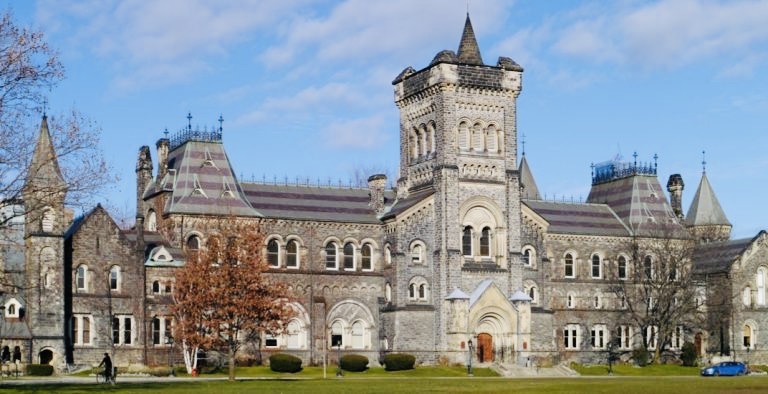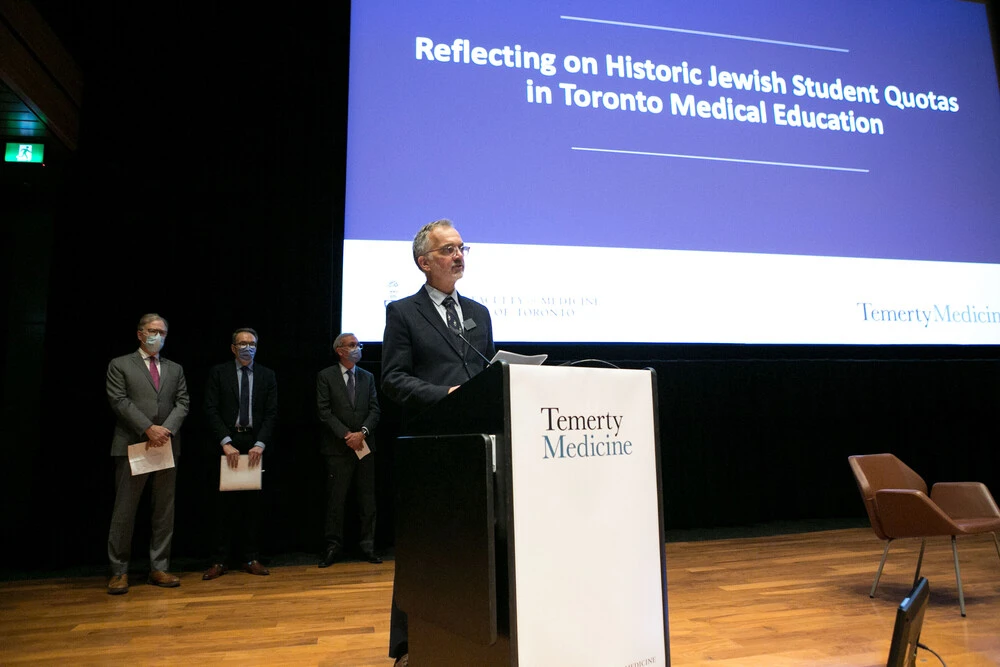The taint of antisemitism has besmirched the University of Toronto, Canada’s largest institution of higher learning.
In a paper published in the December 5 edition of Canadian Medical Education Journal, Dr. Ayelet Kuper charged that a climate of antisemitism has pervaded the University of Toronto’s Temerity Faculty of Medicine (TFOM) for the past few years, during which antisemitic incidents have proliferated in Canada.
According to Statistics Canada, Jews are the most racially targeted religious group in the country. Last year, hate crimes increased by 27 percent, following a 36 percent increase in 2020.
Kuper’s report appeared just two months after its dean, Trevor Young, admitted that Jewish students who applied for admission to the medical school after 1945 were subjected to an antisemitic quota system. (I presume that quotas were already firmly in place before 1945, when antisemitism in Canada was taken for granted).
Given Kuper’s disturbing findings, TFOM should commission an external inquiry on the latest revelations of antisemitism and release a comprehensive plan to combat it.

Kuper, a faculty professor and a child of Holocaust survivors who was born and raised in Israel, was TFOM’s senior advisor on antisemitism from June 2021 until June 2022. She was appointed to this newly-created position in response to reports of antisemitism from students and faculty members alike.
Kuper has not been immune to antisemitism on campus, having experienced it herself.
“I was frequently at a loss as how to escape from the circular reasoning that dismissed my experience of discrimination while dehumanizing me, calling me out as a racist for defending myself against racism, and ascribing to me sinister, hidden power,” she wrote.
“While I describe in this paper my personal experience of discrimination, my purpose is not to name or shame the behavior of individuals (whom I will not name) who perpetrated that discrimination,” she noted. “My goal is to call attention to a growing social justice issue that is larger than any individuals. Antisemitism has been reported to be a problem at many other Canadian higher education institutions, and I anticipate that my experiences and analysis may resonate.”
Kuper, however, pointed out that “a small number of people who identify as Jews” or who are of “Jewish heritage” were among “the group of people whom I have witnessed to be encouraging antisemitism at TFOM.”
She added, “Some of those self-identified Jews have said discriminatory things to me about Jews. Some of them have also described to me a deep embarrassment at being Jewish. Their being Jewish is often used by them and by their non-Jewish colleagues to claim that what they are all saying or doing can’t possibly be antisemitic. There is, of course, a substantial literature on the phenomenon of members of traditionally oppressed groups being made complicit in their own oppression.”
Kuper said she was subjected to “a long list of microaggressions perpetrated by otherwise lovely and reflective people” at TFOM and at its affiliated hospitals. These unidentified individuals claimed Jews were “pushy and demanding” and accused them of “having (or wanting) lots of money” and “only looking out for other Jews.”
She was told that Jews are liars and lie to control the university or the faculty. Colleagues also criticized her for refusing to denounce Israel and suggested she was a racist.
“I was told dozens of times that the current environment of growing antisemitism at TFOM was triggered by the war in Gaza in the spring of 2021, which implies (as was sometimes said to me explicitly) that the cause of TFOM’s ‘antisemitism problem’ is Israel’s government policy,” Kuper wrote.
She denounced this accusation as “classic discriminatory victim-blaming.”
Honest Reporting Canada condemned this phenomenon as “an extremely telling example of how antisemitism has been able to effectively masquerade as legitimate criticism of Israeli government policy. While Israeli actions and policies are surely open to vociferous debate and critique, holding Jews accountable for the actions of the Israeli government, or accepting that antisemitism against Jews as a result of Israel’s actions is somehow a fait accompli, is entirely unacceptable.”
Honest Reporting Canada concluded, “This increasing trend — of holding Jews accountable for Israel’s actions, or otherwise accepting antisemitism as a natural consequence of Israel’s actions — is laid out clearly by the International Holocaust Remembrance Alliance (IHRA) as one of the examples of contemporary antisemitism. In the words of IHRA’s working definition of antisemitism, “Holding Jews collectively responsible for actions of the state of Israel” is a contemporary example of antisemitism.
In her article, Kuper said that antisemitic incidents in the faculty since the last Gaza war have been “carefully reframed” as political activism against Israel, which is protected as free speech and academic freedom.

According to the Friends of Simon Wiesenthal Center, neither the university nor TFOM have adequately addressed the issue of antisemitism. Its chief executive officer, Michael Levitt, said he received numerous reports of “a toxic environment” for Jewish students and faculty. “This harsh reality has been validated by Kuper’s searing indictment of antisemitism.”
Young, for his part, has vowed to instil “a culture of respect and inclusivity for our Jewish community members.”
“It was difficult to read Ayelet Kuper’s personal refection in the Canadian Medical Education Journal,” he said. “The experiences of antisemitism she documents are real. They are harmful … and we condemn the use of demeaning, hateful language in the strongest possible terms. To our Jewish colleagues and learners, we stand with you. We see what is happening in the wider global culture, the rise of vitriol and intolerance, and we know our community is not immune … Ancient tropes and hatreds have no place here.”
Speaking at an event in October to decry the now-defunct quota system, which lasted until the 1960s, Young said he empathized with Jewish students who faced “rampant antisemitism.”
“There were many brilliant Jewish physicians of the time, but so many more careers were lost completely,” he said in a reference to Jewish students who were rejected by the medical school on the grounds that it already had “enough Jews.”
“This offensive rejoinder permeated Toronto’s medical training programs of the postwar period, from anesthesia to psychiatry and beyond … I want to publicly recognize that the Faculty of Medicine’s actions to exclude Jews from the medical profession were wrong and morally reprehensible. The quotas enforced were intentional and pernicious.
“I acknowledge and accept that these actions caused widespread harm to the Jewish community, to the medical students who endured the antisemitic environment, and to those who were excluded entirely … There is no excuse or justification for these actions. For this, I am truly sorry.”
Young’s acknowledgment and rejection of antisemitism in TFOM is commendable. But if the university is really sincere about coming to grips with this ageless problem, it should immediately hire a third party company to conduct an external investigation of it.
As Young correctly said, intolerance has no place in a university, much less than in a decent society.
